Buy 2-Day -Trauma Treatment Certification Course -Comprehensive Strategies and Customizable Interventions for Enhanced Recovery – Robert Lusk Course at GBesy. We actively participate in Groupbuys and are committed to sharing knowledge with a wider audience. Rest assured, the quality of our courses matches that of the original sale page. If you prefer, you can also buy directly from the sale page at the full price (the SALEPAGE link is directly provided in the post).
2-Day -Trauma Treatment Certification Course -Comprehensive Strategies and Customizable Interventions for Enhanced Recovery by Robert Lusk,
Salepage link: At HERE. Archive:
- Faculty:
- Robert Lusk
- Duration:
- 12 Hours 26 Minutes
- Format:
- Audio and Video
- Copyright:
- Jan 21, 2019
Description
Like you, I’ve dealt with some major obstacles to providing effective trauma treatment during my career. How do I make the best use of the growing body of neuroscience research? How can I cut through the clutter of all the possible factors contributing to the trauma and get a clear picture of the issues to address in therapy? How can I tailor my approach to meet the unique needs of each survivor?
I looked for a solution, and discovered it in an integration of neuroscience, physiology, the three stages of trauma recovery, smaller ingredients taken from larger evidence-based models, and customizable treatment strategies that addressed unique needs of trauma survivors and their families.
This certificate course recording presents this integrated and customizable approach to trauma treatment in a manner that is easy to follow and readily adaptable to a variety of settings.
You will discover how to use this integrated model as a foundation upon which you can then tailor and apply treatment approaches with which you are already familiar but until now seemed rigid and inflexible. You will be able to move beyond the standard script often given for when and how to apply various strategies, allowing you to focus much more intently on where the trouble spots are in each survivor’s life and what actions to take to resolve them. You will get a road map that will help you to guide each survivor through all the stages in the trauma recovery process.
In this exciting, innovative, and evidence-informed training, you’ll leave invigorated, with a new plan of action for how to use standard models and strategies in new ways to facilitate meaningful and lasting trauma recovery.
Best of all, this training meets the educational requirements when applying to become a Certified Clinical Trauma Professional (CCTP) through Evergreen Certifications. Certification lets colleagues, employers, and clients know that you’ve invested the extra time and effort necessary to understand the complexities of trauma counselling. Professional standards apply. Visit www.evergreencertifications.com/CCTP to get started!
Handouts
| Manual – 2-Day: Trauma Treatment Certification Course: Comprehensive Strategies and Customizable Interventions for Enhanced Recovery (3.8 MB) | 55 Pages | Available after Purchase |
Outline
Trauma Impact: Summary of the Research
- Definitions & concepts
- Short term and long term effects (the ACE study)
- The “good” and “bad” news about trauma exposure
- Limitations of the research
Assessment and Diagnosis of Trauma
- Assessment of trauma in children, adolescents and adults
- Trauma-& Stressor-Related Disorders in the DSM-5
- What’s still missing from the DSM-5®?
- Common pitfalls in diagnosis
- My “favorite” diagnosis & why to use it frequently
Address Trauma’s Impact on Neurobiology
- Major areas of impact
- The 3-part brain (or upstairs/downstairs brain)
- Neurologically-related issues in trauma survivors
- ”Arrested Development”
- ”Hair Trigger” threat response
- Cognitive, academic, & work-related problems
- Relationship problems
- The arousal continuum
- Dissociation
Evidence-based Treatments vs. the “Real World”
- What does “evidence-based” mean in trauma treatment?
- Components of evidence-based treatments
- The evidence-based components approach
Points of Intervention in Trauma Treatment
- Main entry points: immediate support vs. trauma treatment
- Psychological first aid
- Stages of trauma-focused treatment
- What can you do if your client isn’t emotionally or physically safe?
- Trauma-Focused Cognitive-Behavioral Therapy: The “Gold Standard”
- Case examples
- ”Amanda”: 7-year-old girl with sexual abuse and complex family issues
- ”Phil”: mid-30s man whose son died while in his care
Address Critical Domains in Trauma Treatment
- The Physiology Domain
- Sleep
- Nutrition and hydration
- Sensory needs and interventions
- Medications, supplements, & nontraditional interventions
- Physical activity/exercise
- ”Amanda” and “Phil” and the physiology domain
- The Relationship Domain
- The Attachment, Regulation, & Competency (ARC) model (for youth)
- Teaching caregiver emotional control (for caregivers of youth)
- Build attunement (for caregivers of youth)
- Positive discipline (for caregivers of youth)
- Build the therapeutic alliance
- Build a support network
- Implement routines & rituals
- ”Amanda” and the relationship/attachment domain
- ”Phil” and the relationship domain
- The Emotional Regulation Domain
- Feelings identification and expression
- Use SUDs scales
- Grounding & self-soothing techniques
- The “Comfort Kit”
- Add attunement!
- Apply Bruce Perry’s Neurosequential Model of Therapeutics™
- NMT assessments
- NMT: Interventions by developing age
- ”Amanda” and “Phil” and the emotional regulation domain
- The Cognitive Domain
- Teach and practice problem-solving
- Teach and practice mindfulness
- Address distorted cognitions: Most common targets of cognitive processing
- Cognitive processing: how to modify problematic thoughts
- Use the Franklin Method
- ”Amanda” and “Phil” and the Cognitive Domain
- The Identity Domain
- Focus on identity and sense of self
- Build on existing strengths
- The Life Book approach
- Exercises to improve identity
- ”Amanda” and “Phil” and the identity domain
Additional Components for the 3 Stages of Trauma Recovery
- Stage One: Safety & Stabilization
- Establish rapport
- Education of the client about effect of trauma
- Safety plans
- Trauma-specific areas of focus
- Sexual abuse for “Amanda”
- Triggers for “Phil”
- Stage Two: Process the Past Trauma
- Preparation
- Create the trauma narrative
- Play and verbal-based methods of creating the trauma narrative
- Process of constructing a trauma narrative
- When is your client finished with Stage Two?
- Process “Amanda’s” trauma (play therapy “narrative”
- Process “Phil’s” trauma (verbal narrative)
- Stage Three: Reconnection:
- Consolidate/internalize coping skills
- Enhance positive emotions
- Making meaning of the trauma
- Facilitate reconnection to daily activities
- Enhance current relationships
- Prepare for future safety and triggers
- Posttraumatic growth
- Reconnection for “Amanda” and “Phil”
Resiliency and Protective Factors
- Research on resiliency and protective factors
- The top protective factors for trauma
- Build resiliency
Faculty
Robert Lusk, PhD Related seminars and products: 2
Robert Lusk, PhD, has devoted his career to working with trauma survivors and their families, and providing training and consultation to parents, military families, and professionals on trauma-related issues, parenting special needs children, attachment disorders, psychotropic medications, reintegration after deployment, and psychiatric disorders. For the past 26 years, Dr. Lusk has served as clinical director at The Baby Fold. There, he designs and implements new programs, and provides clinical supervision, consultation and oversight to all the agency’s treatment programs.
Dr. Lusk completed a full-time internship at the Brentwood Veterans Administration Medical Center in Los Angeles, where he focused on PTSD treatment for combat veterans. He has continued to provide supervision, training, and treatment for veterans and other adult trauma survivors for the past 30 years.
Dr. Lusk also instructs courses at Illinois Wesleyan University and has been actively involved in investigative research on trauma for over 30 years, including studies of treatment approach efficacy and cognitive and school-related effects of trauma. He has published several journal articles and book chapters on understanding and treating trauma.
Dr. Lusk earned his Master’s and Doctoral degrees in clinical psychology from the University of California at Los Angeles and has trained in a variety of interventions including Trauma-Focused Cognitive Behavioral Therapy, the Attachment, Regulation, and Competency (ARC) model, Collaborative Problem-Solving, couples and family therapy, Trust-Based Relational Intervention, and Eye Movement Desensitization and Reprocessing (EMDR).
Speaker Disclosures:
Financial: Robert Lusk is an adjunct assistant professor at Illinois Wesleyan University. He has an employment relationship with The Baby Fold. Dr. Lusk receives a speaking honorarium from PESI, Inc.
Non-financial: Robert Lusk has no relevant non-financial relationship to disclose.
Buy the 2-Day -Trauma Treatment Certification Course -Comprehensive Strategies and Customizable Interventions for Enhanced Recovery – Robert Lusk course at the best price at GBesy.. After your purchase, you will get access to the downloads page. You can download all the files associated in your order at here and we will also send a download notification email via your mail.
Unlock your full potential with 2-Day -Trauma Treatment Certification Course -Comprehensive Strategies and Customizable Interventions for Enhanced Recovery – Robert Lusk courses. our courses are designed to help you excel.
Why wait? Take the first step towards greatness by purchasing 2-Day -Trauma Treatment Certification Course -Comprehensive Strategies and Customizable Interventions for Enhanced Recovery – Robert Lusk courses today. We offer a seamless and secure purchasing experience, ensuring your peace of mind. With our trusted payment gateways, Stripe and PayPal, you can confidently complete your transaction knowing that your financial information is protected.
Stripe, known for its robust security measures, provides a safe and reliable payment process. With its encrypted technology, your sensitive data remains confidential throughout the transaction. Rest assured that your purchase is protected.
PayPal, a globally recognized payment platform, offers an additional layer of security. With its buyer protection program, you can feel confident in your purchase. PayPal ensures that your financial details are safeguarded, allowing you to focus on your learning journey.
Is it secure? to Use of?
- Your identity is completely confidential. We do not share your information with anyone. So it is absolutely safe to buy the 2-Day -Trauma Treatment Certification Course -Comprehensive Strategies and Customizable Interventions for Enhanced Recovery – Robert Lusk course.
- 100% Safe Checkout Privateness coverage
- Communication and encryption of sensitive knowledge
- All card numbers are encrypted using AES at relaxation-256 and transmitting card numbers runs in a separate internet hosting atmosphere, and doesn’t share or save any data.
How can this course be delivered?
- After your successful payment this “2-Day -Trauma Treatment Certification Course -Comprehensive Strategies and Customizable Interventions for Enhanced Recovery – Robert Lusk course”, Most of the products will come to you immediately. But for some products were posted for offer. Please wait for our response, it might take a few hours due to the time zone difference.
- If this happens, please wait. The technical department will process the link shortly after. You will receive notifications directly by e-mail. We appreciate your wait.
What Shipping Methods Are Available?
- You will receive a download link in the invoice or YOUR ACCOUNT.
- The course link always exists. use your account to login and download the 2-Day -Trauma Treatment Certification Course -Comprehensive Strategies and Customizable Interventions for Enhanced Recovery – Robert Lusk course whenever you need.
- You only need to visit a single link, and you can get all the 2-Day -Trauma Treatment Certification Course -Comprehensive Strategies and Customizable Interventions for Enhanced Recovery – Robert Lusk course content at once.
- You can do your learning online. You can be downloaded for better results and can study anywhere on any device. Make sure your system does not sleep during the download.
How Do I Track Order?
- We always notice the status of your order immediately after your payment. After 7 days if there is no download link, the system will automatically complete your money.
- We love to hear from you. Please don’t hesitate to email us with any comments, questions and suggestions.
![GBesy [GB] GBesy [GB]](https://www.gbesy.com/wp-content/uploads/2023/05/gbesy-Logo-full-100.png)
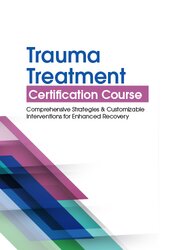
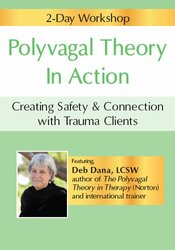
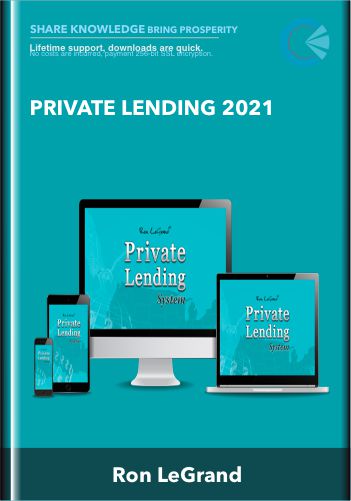
 Purchase this course you will earn
Purchase this course you will earn 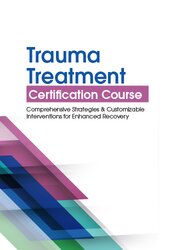
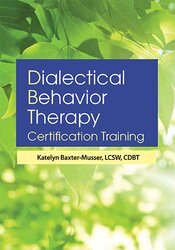
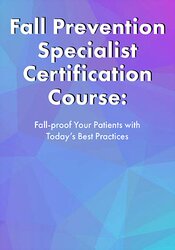
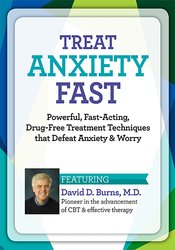
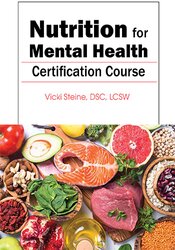
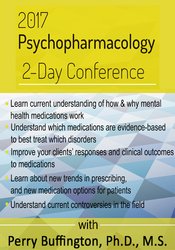
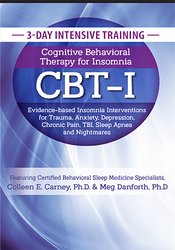
Reviews
There are no reviews yet.